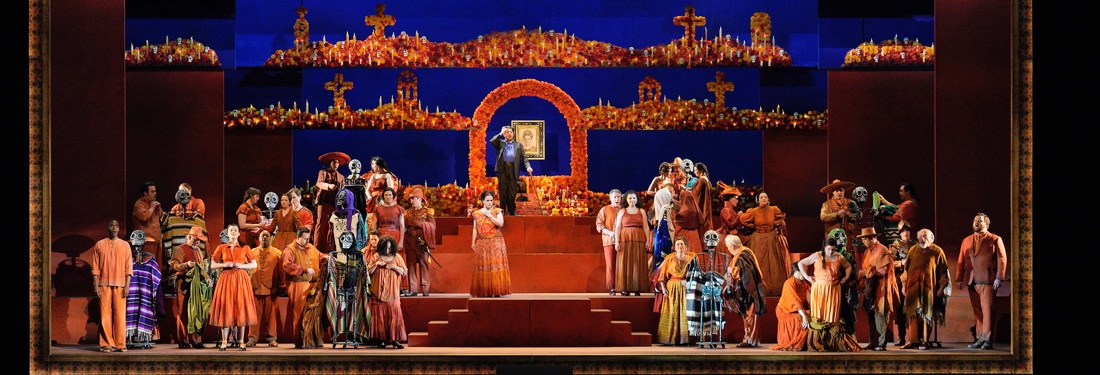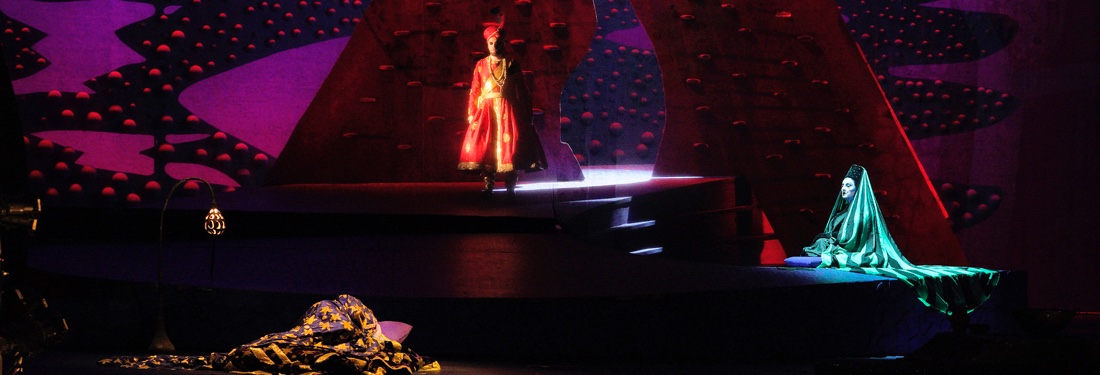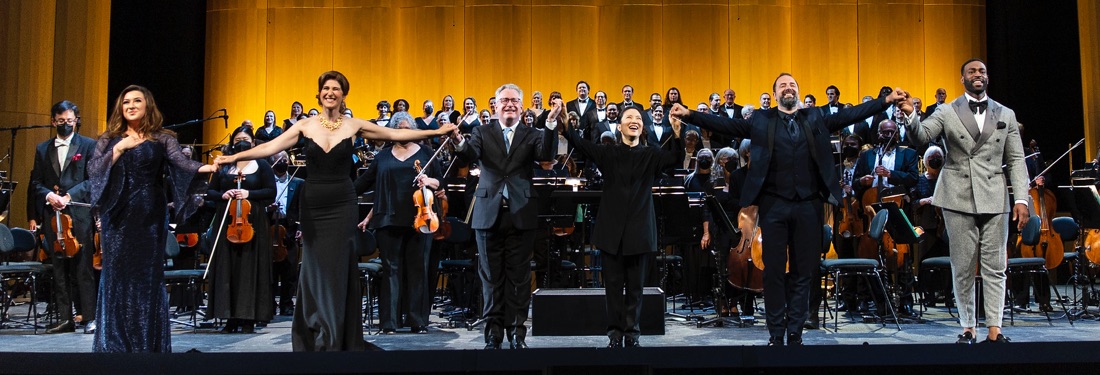
Michael Anthonio
“I joyfully await the exit—and I hope never to return” were the last words written by the visionary Mexican painter, Magdalena Carmen Frida Kahlo y Calderón (famously known simply as Frida Kahlo), according to her 2002 biography by Hayden Herrera.
Richard Strauss’ monumental (arguably his magnum opus) Die Frau ohne Schatten made a triumphant return to the War Memorial Opera House last Sunday June 4 after 34 years.
On Friday, MCal Performances—the performing arts organization based at University of California, Berkeley—presented the US premiere of South African multi-disciplinary artist William Kentridge’s Sybil, with music composed and conceived by Nhlanhla Mahlangu and Kyle Shepherd.
Now the opera world can have a taste of what an immersive opera looks like, as Opera Parallèle opened their spectacular world premiere of Everest: An Immersive Experience .
Alma Deutscher’s quest for beautiful music permeates the score of her Cinderella from the hushed opening of the Overture.
There are no words superlative enough to describe this celebration of Orpheus’ grief, and I truly applaud San Francisco Opera for presenting such food for thought that will definitely resonate long after with me.
San Francisco Opera has unveiled a brand-new production of Giuseppe Verdi’s warhorse classic La traviata, the first “to be built in San Francisco Opera’s scene and costume shops in 35 years.”
“The function of prayer is not to influence God, but rather to change the nature of the one who prays” – Soren Kierkegaard
Robert Carsen‘s legendary production of Eugene Onegin finally arrives in San Francisco.
For the season opener, Opera San José decided to explore the class conflict central to Le nozze di Figaro by transporting the opera to India, specifically during the British Raj.
The concert itself—starring Michael Fabiano, Nadine Sierra, Pene Pati and Lucas Meachem—seemed to be a beautiful affair that I would have loved to see it in a person.
Antony and Cleopatra was an auspicious start to San Francisco Opera’s second century, a performance that seems to improve as I continue to think about it.
I felt that the whole performance at West Edge Opera on Sunday was greater the sum of its parts, particularly due to the dedication of the whole cast and crew amidst all adversities.
The July-August timeframe in the San Francisco Bay Area is always exciting time in terms of opera.
On Thursday June 30th, San Francisco Opera closed their summer season with a one-night-only special concert celebrating Eun Sun Kim’s first season as the Caroline H. Hume Music Director, in an aptly named concert “Eun Sun Kim Conducts Verdi.”
The second act of Dream of the Red Chamber reached the apex and provided the audience with soul-stirring fulfillment.
“This used to be a funhouse… but now it’s full of evil clowns / It’s time to start the countdown…. I’m gonna burn it down”
Ludwig van Beethoven’s “rescue opera” Fidelio was presented by San Francisco Opera as their first new production of the season last Thursday in reinterpreted fashion.


















































